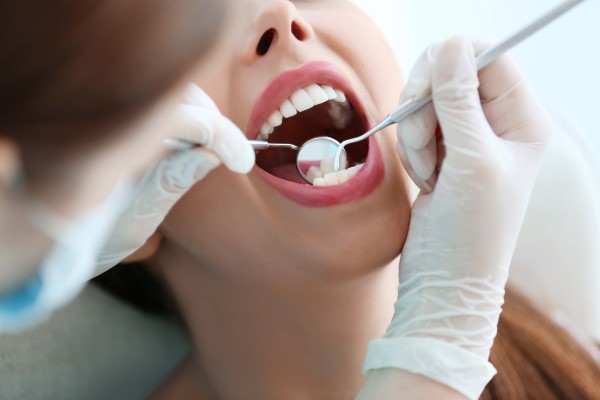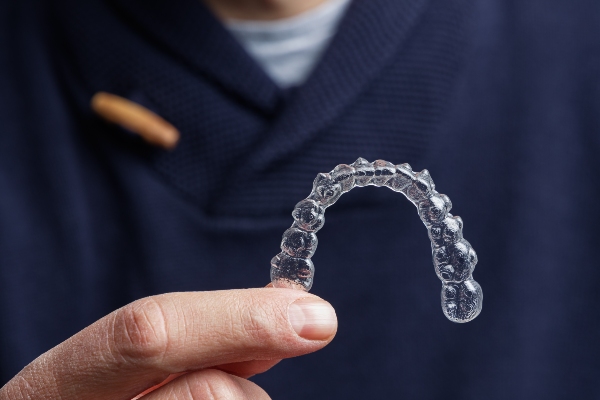How Often Should I Visit My Dentist for a Dental Cleaning?

The lingering rule about dental cleaning is that it should be done twice every year. This is what dentists tell their patients to maintain good oral health. Because of busy schedules, you often get a phone call to remind you to come back for your next teeth cleaning. The reminder often leads many patients to ask how often dental cleanings should be. If you are wondering how many times a year you should go for a teeth cleaning, here are the facts.
The true frequency
Most people know that a dental cleaning should be every six months or twice a year. This recommendation originates from a toothpaste commercial. Seeing the dentist twice yearly is not ideal for every person. The truth is that every set of teeth has different needs. Every patient’s oral care needs depend on medical conditions, oral hygiene, and habits.
Some patients may do well with just seeing the dentist once or two times every year. Others may need to do so at least twice. Patients should ask dentists when the next dental appointment will be. Most dentists would tell patients to see them on a specific date. This is better so that patients could prepare ahead.
Patients who need more frequent dental cleanings
Certain patients need to have a dental cleaning at least two times each year. These people are at greater risk of developing periodontitis and other dental issues. Such patients should go for a dental cleaning at least every three months. People who belong to the high-risk group are smokers, diabetics, and pregnant women. Those who are immunocompromised, prone to cavities, and have periodontitis also need to get a dental cleaning more often.
The reasons for dental visits
Seeing the dentist for a dental cleaning will always be part of one’s oral hygiene. The primary goal of dental checkups is to prevent serious dental problems. Dentists have the training and knowledge to detect any budding oral health issues. One example is gum disease, which is not painful or visible until they become worse. If dentists do find such dental issues, early treatments or referrals can happen. Patients can save a lot of effort and money this way.
Dentists recommend that children should have more frequent dental cleanings because their teeth are more vulnerable to decay. Adults who do not have any dental issues can visit even every two years. People who are below 18 years old are at low risk. These patients can see the dentist every 18 months to two years.
Keeping dental cleanings less frequent
Patients can go ahead and visit dentists less often. They could only do this if good oral care is a priority. Brushing twice a day, flossing before bed, and using an antibacterial mouthwash are effective ways to ward off cavities. If the dentist does not spot any problems at all, then teeth cleanings will be less frequent.
Consequences of not having a regular dental cleaning
It may not seem important to go to the dentist for a dental cleaning, but it is. Most people find themselves too busy to keep their dental appointments. Skipping them can affect one’s oral health. Here are the consequences of not getting professional dental cleanings:
- Gum disease can develop. This dental condition’s symptoms include gum bleeding, bad breath, and swollen gums. It can worsen and result in tooth loss if the patient does not get treatment for it. Severe gum disease will be difficult to treat. So, keeping dental cleaning appointments is important.
- There could be undetected signs of oral cancer. The dentist can perform an oral cancer screening during dental cleaning visits. A sore in the mouth that does not heal or a lump on the neck or face that does not go away might be signs of oral cancer. Skipping dental cleanings can be harmful to one’s life.
- Tooth decay can start and worsen if the patient does not get treatment for it. Shallow and small cavities will need dental fillings. Setting aside dental cleaning appointments can lead to the worsening of these cavities. The patient may then suffer from root canal treatment or tooth loss.
- One’s general health might suffer. When the level of plaque in the mouth increases too much, it can seep into the blood vessels and travel to the arteries. Studies show that the healthier one’s mouth is, the healthier the body is. Failing to keep dental cleaning appointments can lead to chronic conditions like cardiovascular diseases.
The frequency of your dental cleanings depends on the level of your oral health
How often you see your dentist depends on the condition of your mouth. People like diabetics and smokers should have teeth cleanings more often. Dental cleanings prevent you from developing serious oral issues. Combined with your thorough oral care, you may even have less frequent visits to your dentist.
Are you considering getting a dental cleaning in the Sunnyvale area? Get more information at https://stonecanyondental.com.
Check out what others are saying about our dental services on Yelp: Dental Cleaning in Sunnyvale, TX.
Recent Posts
Dental hygiene and fresh breath go hand in hand, and for many patients, a regular dental cleaning is a crucial part of their oral care routine to have healthy teeth and gums and avoid bad breath, or halitosis.In this article, we delve into dental cleaning and its relationship with bad breath. We explore how routine…
Your dentist might recommend a deep cleaning if you have been diagnosed with periodontal disease. Commonly known as gum disease, this condition affects about half of the people in the United States by the age of 45. Depending on how early the condition is detected, it can be reversed, but sometimes it may only be…
Your teeth and gums are some of the most important features of your smile, and it’s essential to take care of them with routine dental cleaning every six months or so. During these cleaning sessions, you’ll meet with your dentist and hygienist to go over any issues and talk about new ways to keep your…
A full dental exam is a common dental visit that involves an extensive review of the patient’s oral health to detect any issues (or the potential onset of issues) as early as possible. This helps prevent any problems by allowing the dentist to treat any concerns in the earliest stages possible, which can save the…







